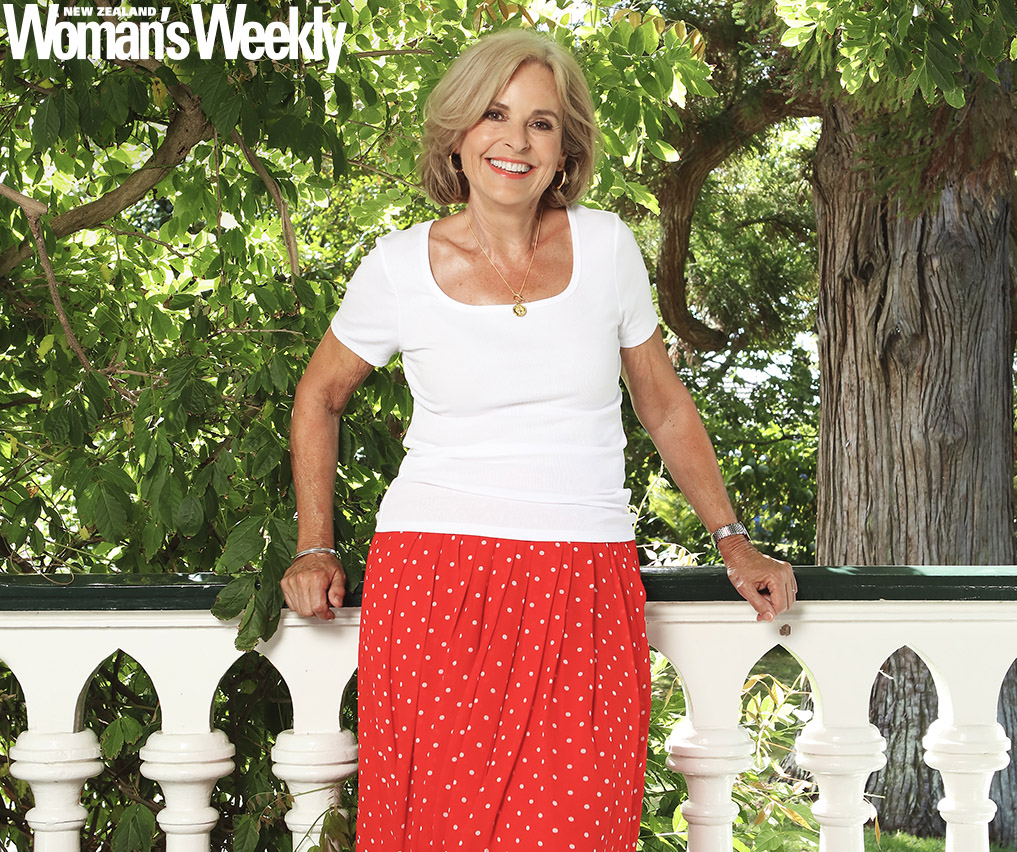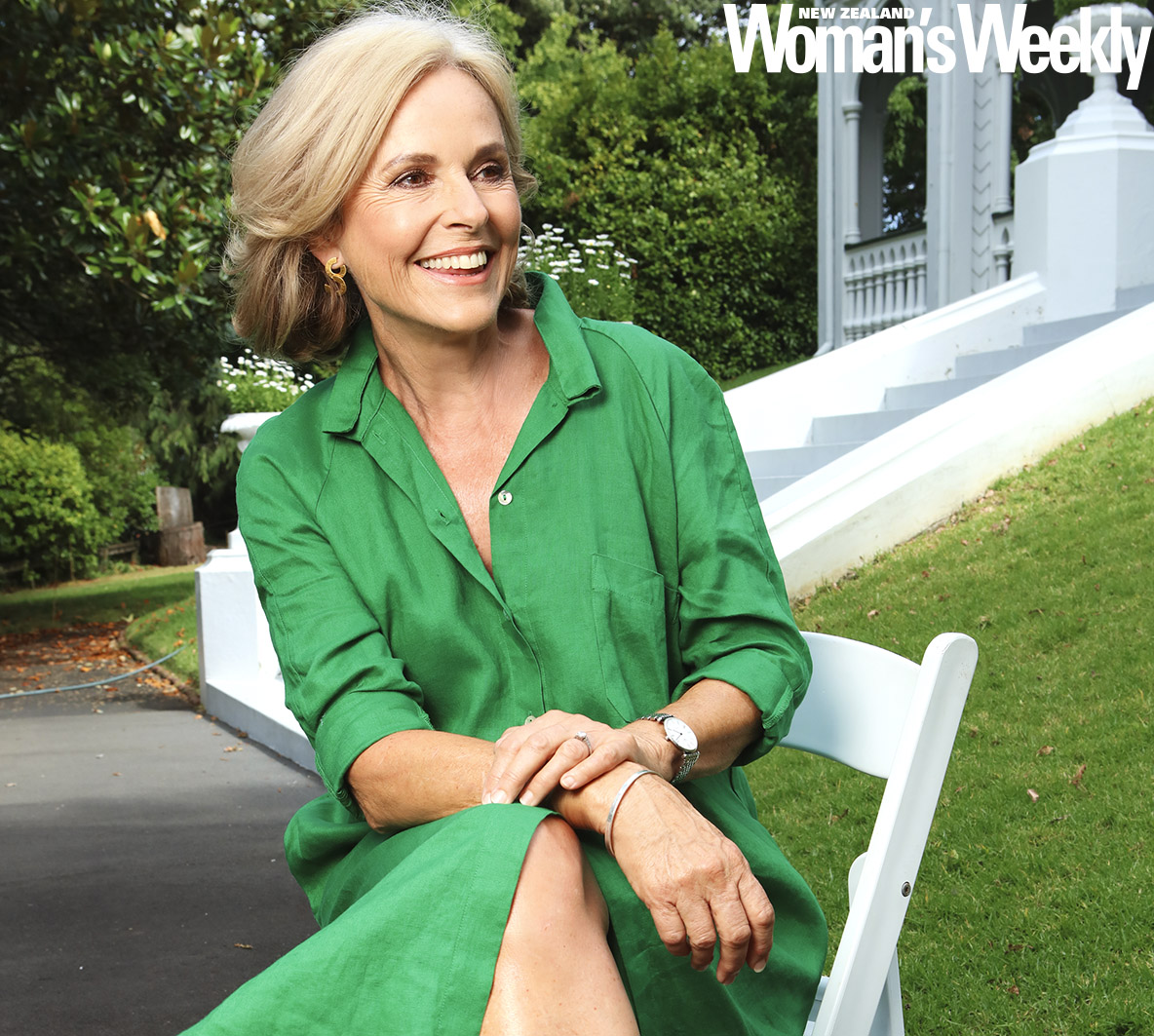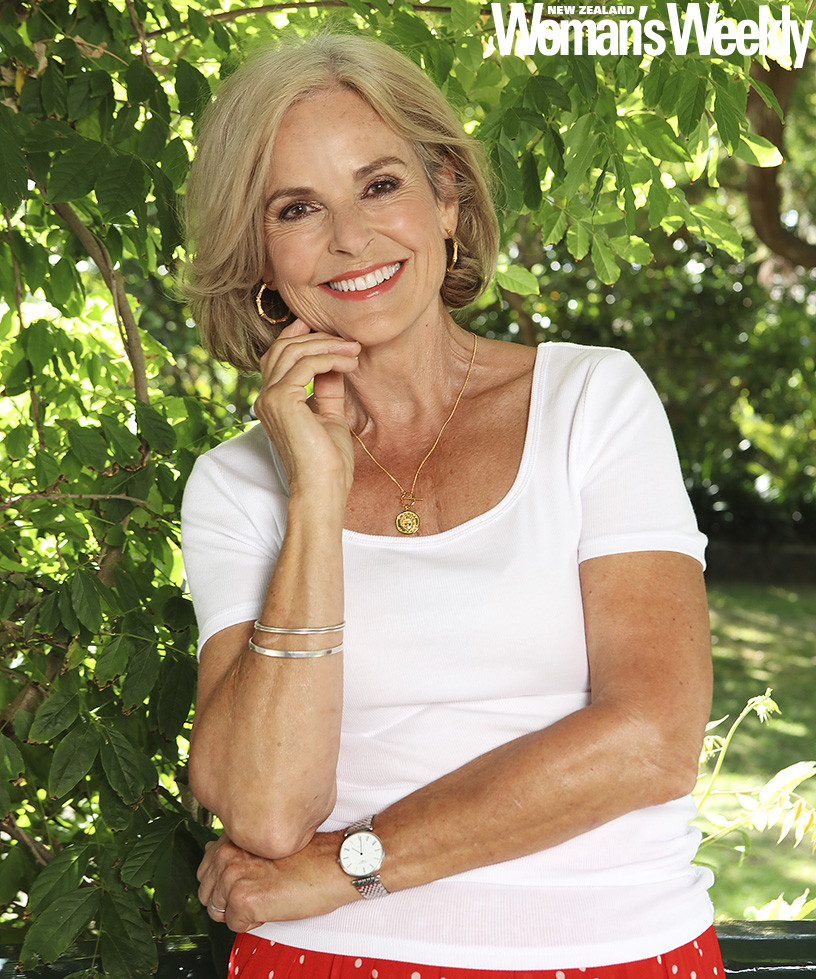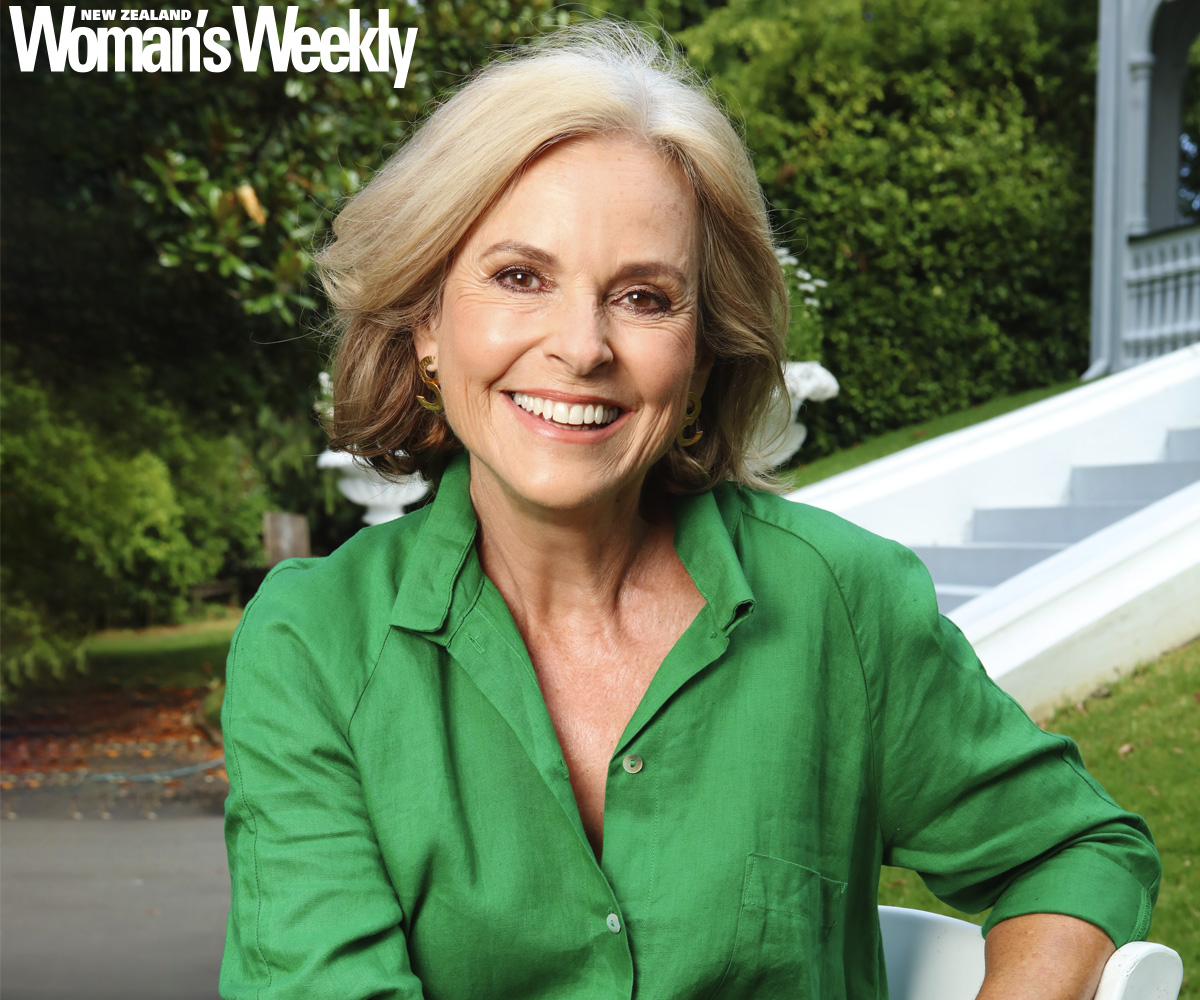When Judy Bailey told her grandchildren she was doing a tattoo they looked at her and said, ‘Juju! Where are you going to get it?'”
She had to do some quick explaining, pointing out she’s not getting inked – instead she is going to be narrating New Zealand’s first-ever military tattoo.
“I said, if I did get a tattoo, where should I get it? They thought I should have their names and birth dates on my back. I’ve got seven grandchildren so that’s quite a lot!”
So would she consider an actual tattoo?
“I think I’ve left my run too late,” she says with a smile. “I’ll stick to the military type.”
It’s hard to believe, but it’s been nearly 15 years since Judy read the TVNZ news in our living rooms every weeknight.
Her hair’s now blonde but the familiar dulcet tones are exactly the same, and she doesn’t appear to have aged a day.
She keeps busy with her grandkids and a variety of projects, and says she was delighted when she was asked to do the commentary for the tattoo, which is being held in Palmerston North on April 4.
“It’s a lovely kind of synergy for me because I grew up in the forces. My dad was a career serviceman who was the commanding officer at Ohakea’s air force base when I was born. Two years later he was sent to headquarters in Wellington but I still grew up as part of the air force family.
“It’s a thing very peculiar to the forces – everybody knows everybody else, they socialise together and they are very supportive of each other. It’s really quite a different upbringing, and whenever I go onto a base I feel at home because they are all the same.”

Judy’s dad Ian Morrison rose to Air Vice-Marshal, and held the top job in the air force, Chief of Air Staff.
Her eyes light up as she talks about her beloved late father and his career in the services, recalling how he was so keen to learn to fly that he headed to the UK to join the RAF.
“He went with £20 in his pocket and a teeny tiny copy of The Rubáiyát of Omar Khayyám. I love that image of him going off to learn to fly and taking his poetry with him.”
Not long afterwards, World War II broke out.
By then Ian had met and married Judy’s mum, Englishwoman Dorothy Franks, known as Dinny.
“He was asked to come back to New Zealand to set up the navigational school here, so they flipped a coin – heads to stay in England and fight the war with the RAF, or tails to come back to New Zealand. It was tails, so they ended up here. Dad flew with the RNZAF and fought in the islands during the war.”
Judy (67) always had huge respect for her father and what he did, although they were at loggerheads over the Vietnam War.
“We had some pretty robust arguments,” she says.
“He was pro the war and worried about the Communist domino effect.
“I laughed at his ‘reds under the beds’ ideas. In the end we had to agree to disagree. But I still think I was right!”
Judy also has enormous respect for our armed services, particularly when it comes to their peacekeeping roles in trouble spots around the world.
“Our defence forces have that wonderful Kiwi-ness about them and they are able to go into very tense situations and win the locals over. They really put themselves on the line – what’s going on in Afghanistan and Iraq is terrible. They make a difference in the world and I think that is wonderful.
“The world is now a tiny global community and we have to play our part in it, which we are doing really well. We get on with it quietly and you often don’t hear about what our guys get up to, so it’s nice that we can celebrate them with the military tattoo.”
Judy points out that as well as their international efforts, members of the defence forces are often among the first on the scene whenever there is a disaster at home.
“When you think about the Christchurch earthquakes or the mosque shootings or the White Island eruption, they are always there to help, and they don’t always get the credit they deserve.
“And the thing is, they’re running on a shoestring. The air force is still flying the planes my dad bought back in the ’60s. Those dear old Hercs and Orions have been doing sterling service all these years.”

Judy’s support for our service people extends to being the trustee of the Missing Wingman Trust, a charity set up in 2010 to support air force families when a member has been killed or wounded or falls ill.
“The trust is a lovely idea – it was set up by serving air force personnel around the time of the 2010 Anzac Day helicopter crash and it helps families going through tough times,” explains Judy.
“We have a lot of families who’ve had illnesses like cancer, who are struggling, and the trust is able to do things from fixing their roofs or tidying up their gardens through to providing scholarships for kids.”
She says most people who receive support from the trust don’t actually ask for it.
“We tend to hear about them from a contact on the base and through word of mouth. We can then approach them and say, ‘What do you need?’ It’s a really lovely organisation and I think my dad would be pleased that I am involved.”
Ian, who died in 1997, would no doubt have also been happy that Judy was involved in the Anzac Day commemorations on Māori TV. She’s presented their annual coverage for 10 years.
“It’s incredible how many people turn out on Anzac Day, and it’s particularly good to see that a lot of younger people are going to the services. I think the Māori TV broadcast had a lot to do with that.
“They really put their heart and soul in the commemorations, and travelled the length of the country searching out stories that would never have been told otherwise. I think it really brought the whole thing back to the nation’s consciousness.”

Judy twice had the chance to do an Anzac Day broadcast from Gallipoli and says each occasion was a highlight of her career.
“The atmosphere on the peninsula was just electric,” she recalls.
“I was standing on Chunuk Bair talking to Chris Pugsley, a military historian, and he was telling me about how the Kiwi soldiers climbed Chunuk Bair and they didn’t have time to dig proper foxholes so there were just little depressions in the side of the hill. The scrub has grown over them over the years but because it was the centennial, the Turks cleared the hillside, and there they were, these little depressions where these men lay under the barrage of fire.
“Chris was saying, ‘A Kiwi boy died there, and there, and there.’ I later went back to have a moment on my own because it was overwhelming. Being at Gallipoli was special and I feel so grateful to have experienced that.”
These days Judy is enjoying a variety of projects, including writing travel articles and magazine profiles.
“Writing has always been my first love – I just got sidetracked by TV. I would love to do some more and there may even be a book in me. Who knows?
“I’d also love to write a book about my dad’s life. I’ve got a box full of his papers so there is a lot of material and there would be plenty to write about, but it is just a matter of finding the time. I must try to do it. I absolutely adored my dad.”
The first New Zealand Military Tattoo will be a uniquely Kiwi event, says Judy.
Held at the Central Energy Trust Arena in Palmerston North on the evening of April 4, it won’t be televised but is expected to attract a large crowd to celebrate our military and cultural history.
Bands taking part include the New Zealand Army Band, which last year won an award as the performers who made the greatest contribution to the famous Royal Edinburgh Military Tattoo.
Along with music, fly-pasts and a simulated battle, there will also be a haka performed by 200 members of the defence forces.
“It’s going to be spine-tingling stuff – I am really looking forward to it,” says Judy.
For more information, see nztattoo.nz




.jpg)